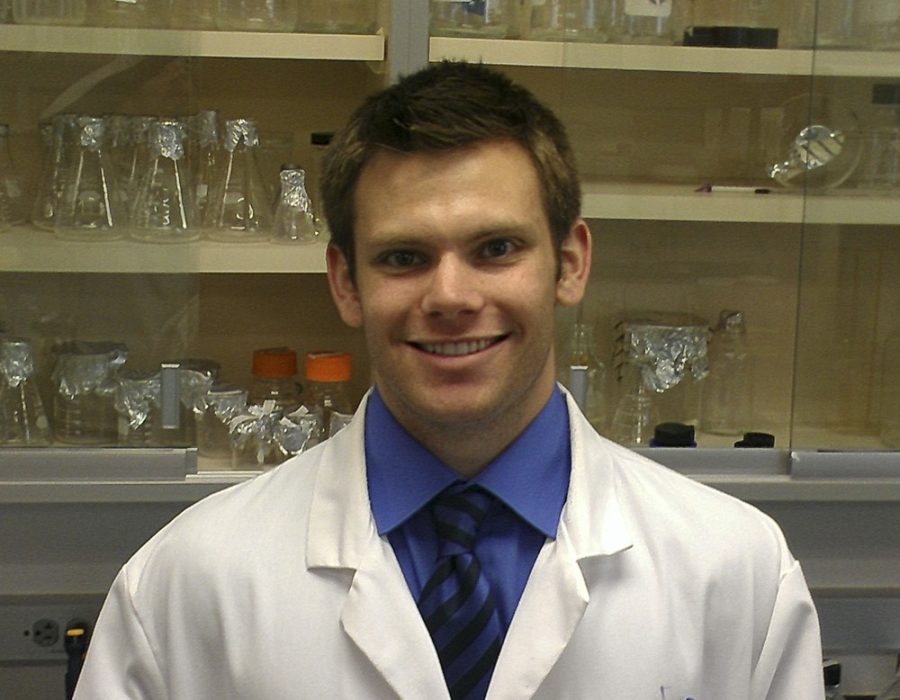Two UA students have earned acceptance into the College of Medicine M.D.-Ph.D. program after applying only once, a process that typically takes a few tries.
Bianca Barcelo will graduate with a Bachelor of Science in molecular and cellular biology and a Bachelor of Health Science in physiology. Alex Sandweiss graduated last spring with a Bachelor of Science in physiology and a minor in music. They will both continue their research in the medical field.
At a young age, it was Barcelo’s responsibility to make communication between doctors and her non-native grandparents as easy as possible. She attended every doctor’s appointment her parents could not and interpreted for her grandparents in Spanish.
Using her ability to speak both English and Spanish fluently, Barcelo worked as an interpreter at Clinica Amistad, a nonprofit organization that serves underprivileged people who do not speak English or have insurance. With her volunteer work at Clinica Amistad, Barcelo found a passion for working with patients.
Translating for her grandparents and time at Clinica Amistad led her to double major in molecular and cellular biology and physiology and minor in Spanish.
Her participation in the Minority Health Disparities summer program helped her develop an interest in research as well. As a trainee in Minority Access to Research Careers, Barcelo received the opportunity to be an Amgen Scholar at Stanford University, where her research focused on proteins essential to cell adhesion and movement. At the end of her eight-week research program with a Stanford mentor, Barcelo presented her research at a conference in front of Stanford medical professors and scientists.
“It was amazing seeing what a Ph.D. can do for you,” Barcelo said.
But despite all of Barcelo’s hard work, she still found time to do the things she enjoyed such as spending time with her friends and dog.
Barcelo encourages students who are going through the same process to “try their best and never give up if that’s what you want to do.”
Sandweiss was already a year into graduate school when he received his acceptance. Torn between continuing on to medical school and pursuing a career in music, Sandweiss spent his college years figuring out what exactly he wanted to do.
Music has always been part of Sandweiss’ life. He was in the UA jazz band and played the piano. But now music will remain a hobby as he continues doing clinical research.
After figuring out what career he wanted to pursue, Sandweiss began working in labs, which led him to pharmacology.
“You need to know how to think critically in the research world and figure out what you want to do experimentally,” he said.
While completing his undergraduate degree, Sandweiss worked with Todd Vanderah, interim head of the pharmacology department, to look for a new therapy for chronic neuropathic pain, namely to find a drug that has the good side effects without the bad ones.
Previously, Sandweiss worked on understanding the correlation between estrogen cycles in females and migraine headaches. Through animal models, he is working on therapy to help relieve migraines that are linked to estrogen. The goal of the project is to develop a drug that will target where the pain is occurring, unlike other pain relievers such as Advil that spread everywhere in the body.
“Ecstatic” was the word Sandweiss used to describe his emotions when he received his acceptance phone call. Although Sandweiss did get accepted, there were a lot of frustrating moments during the process, but giving up was not an option, he said.
“They (Barcelo and Sandweiss) were our top students,” said Dr. Emmanuel Katsanis, a professor of pediatrics and director of the M.D.-Ph.D. program. “I am very hopeful that they will do a great job and I’ll be proud of them when they finish all of this.”
Sandweiss and Barcelo were both determined to get in and continue to apply if they did not get accepted the first time.
“This is the first major breakthrough to getting where I am right now and I have conceived the white light at the end of the tunnel,” Sandweiss said, “where everything is paid off and now there is major work to do to get to the next step.”









